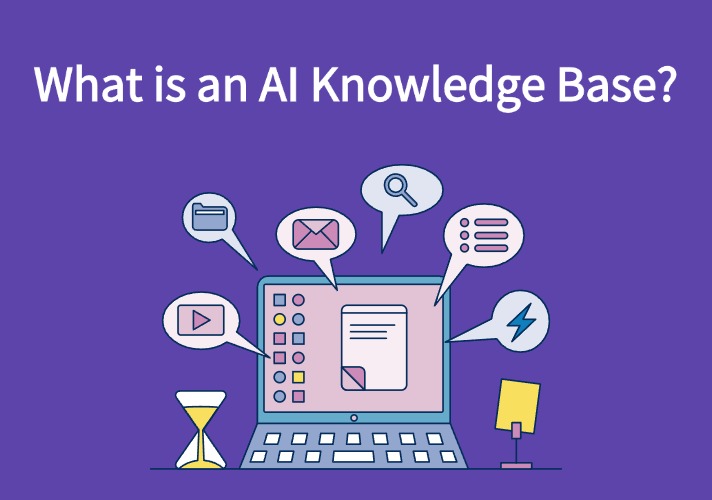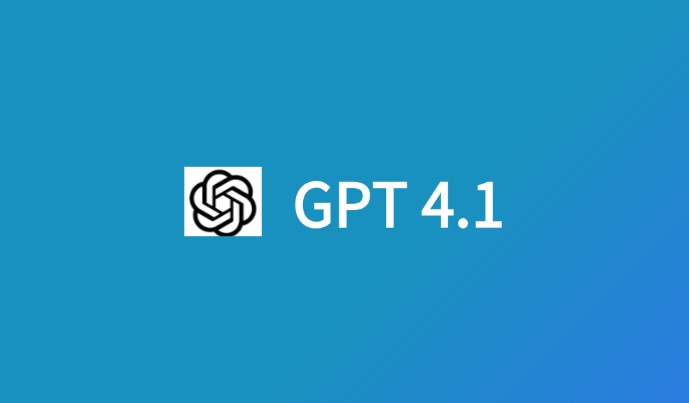Published on April 12, 2025, by Nancy, AI Technology Enthusiast and Researcher
In today’s fast-paced, information-driven world, managing knowledge efficiently is a game-changer for professionals across industries. An AI knowledge base—a centralized, intelligent system powered by artificial intelligence—has emerged as a revolutionary tool for organizing, retrieving, and analyzing vast amounts of data. Unlike traditional knowledge bases, which rely on manual updates and keyword searches, AI knowledge bases leverage machine learning, natural language processing (NLP), and generative AI to deliver smarter, more personalized results. This 2025 guide explores eight key benefits of an AI knowledge base, tailored to diverse groups like finance professionals, academics, small business owners, and creative workers, while addressing the practical advantages users want to see.
What Is an AI Knowledge Base?
A traditional knowledge base is a centralized digital hub designed to store and organize critical information for easy access, especially in industrial and manufacturing settings. It typically includes:
- Technical Manuals: Guides for operating and maintaining machinery, such as robotic arms or CNC machines.
- Process Guides: Step-by-step instructions for workflows, like assembling components or packaging goods.
- Safety and Compliance Protocols: OSHA regulations and internal safety policies to ensure safe operations.
- FAQs and Troubleshooting Guides: Quick solutions to common issues, such as fixing a conveyor belt jam.
However, traditional knowledge bases often fall short due to their reliance on manual updates and keyword-based searches. For example, a factory worker searching for a troubleshooting guide might need to dig through layers of documents or guess the right keywords, leading to delays that can cost thousands of dollars in downtime.

An AI knowledge base transforms this experience by integrating advanced artificial intelligence technologies like machine learning (ML), natural language processing (NLP), and large language models (LLMs). Here’s how AI elevates the traditional system for modern industrial needs:
- Semantic Search: AI understands the intent behind queries, not just keywords. A technician asking, “How do I fix a hydraulic pump failure?” will get precise results, even if the exact phrase isn’t in the database, by linking related concepts like “pump maintenance.”
- Conversational Access: NLP allows users to ask questions in everyday language. A worker can simply say, “Why is the assembly line slowing down?” and the AI will pull relevant process guides and service logs.
- Continuous Learning: ML enables the system to improve over time, learning from user interactions to deliver more relevant answers. For instance, if a team frequently searches for electrical fault solutions, the AI prioritizes related content.
- Multi-Format Data Handling: AI systems like iWeaver can process diverse data types—PDFs, videos, and spreadsheets—into a unified, searchable repository, making it easier to access technical manuals and training videos in one place.
By leveraging these capabilities, an AI knowledge base like iWeaver ensures faster, more accurate information retrieval, minimizing downtime and boosting operational efficiency in manufacturing environments.
Formal vs. Unstructured AI Knowledge Base
An effective AI knowledge base in manufacturing must integrate both formal and unstructured knowledge to provide a comprehensive, actionable repository. Each type plays a unique role in driving efficiency and informed decision-making.
Formal Knowledge: Structured and Essential
Formal knowledge consists of structured, official documentation critical for standard operations:
- Technical Manuals: Detailed guides for machinery, such as how to calibrate a robotic arm.
- Process Guides: Instructions for workflows, like assembling a car engine on the production line.
- Safety and Compliance Protocols: Regulations like OSHA standards to ensure safe, compliant operations.
- FAQs and Troubleshooting Guides: Predefined solutions, such as steps to reset a malfunctioning sensor.
This structured data ensures consistency and compliance but can be rigid and slow to access in traditional systems.
Unstructured Knowledge: Real-Time and Insightful
Unstructured knowledge captures informal, real-time data that offers practical insights but is harder to organize:
- Case Tickets: Records of past issues, like a ticket detailing a motor failure and its resolution.
- Service Logs: Maintenance histories, such as a log showing a machine’s downtime patterns.
- Customer Inquiries: Support questions, revealing recurring issues like frequent warranty queries.
- Email Threads, Chats, and Notes: Internal communications, such as an engineer’s note on a production workaround.
Integrating both types into an AI knowledge base like iWeaver creates a powerful system that delivers holistic insights. For example, a manufacturing engineer troubleshooting a robotic arm can access the official manual (formal knowledge), past service logs (unstructured knowledge), and a video tutorial—all in one query. iWeaver’s ability to handle up to 20 files simultaneously and process multi-format data ensures that both structured and unstructured knowledge are instantly accessible, driving productivity, reducing errors, and enabling data-driven decisions in real time.
Benefits of an AI Knowledge Base
1. Accelerated Research and Decision-Making for Finance Professionals
Finance professionals, such as analysts and portfolio managers, often juggle thousands of documents—market reports, financial statements, and regulatory updates. An AI knowledge base streamlines this process by enabling rapid, intent-driven searches. For example, a hedge fund analyst can query, “What are the latest trends in ESG investing?” and the AI will not only pull recent articles but also cross-reference them with historical data, internal notes, and relevant datasets, all in seconds. This speed can reduce research time by up to 40%, as seen in the case of Dr. Jane L., a finance professor who completed her fintech book manuscript 40% faster using an AI knowledge base.
Beyond speed, AI knowledge bases enhance decision-making by providing actionable insights. They can identify patterns in financial data, such as correlations between bond yields and macroeconomic indicators, helping professionals make informed decisions under tight deadlines. For finance pros, this means staying ahead in a competitive market where every second counts.
2. Enhanced Productivity for Academics and Researchers
Academics and researchers often face the daunting task of managing extensive literature reviews, lecture notes, and datasets. An AI knowledge base acts as a tireless research assistant, automating repetitive tasks and freeing up time for high-value work like writing or teaching. For instance, a history professor preparing a lecture on the Industrial Revolution can ask the AI, “Summarize key economic impacts of the Industrial Revolution,” and receive a concise summary of relevant papers, books, and even their own annotations—all in a matter of moments.
Moreover, AI knowledge bases support multi-data processing, allowing researchers to integrate text, images, and datasets into a single workflow. A biology researcher studying genetic mutations can upload PDFs, images of gene sequences, and datasets, then query the system to find connections between specific mutations and disease outcomes. This capability not only boosts productivity but also uncovers insights that might be missed with traditional tools, making it a must-have for academics aiming to publish faster and teach more effectively.
3. Personalized Knowledge Access for Small Business Owners
Small business owners wear many hats—marketer, accountant, and strategist, to name a few. An AI knowledge base tailors information to their unique needs, ensuring they get the most relevant insights without wading through irrelevant data. For example, a bakery owner can store recipes, supplier contracts, and marketing plans in the knowledge base. When they ask, “What’s the best social media strategy for holiday sales?” the AI will prioritize their past marketing notes, pull recent articles on holiday trends, and suggest a tailored plan based on their business size and audience.
This personalization extends to learning user habits over time. If the bakery owner frequently searches for cost-saving tips, the AI will proactively surface articles on bulk ingredient purchasing or energy-efficient baking equipment. By delivering customized results, an AI knowledge base saves small business owners time and helps them focus on growing their business rather than searching for answers.
4. Seamless Collaboration for Teams in Tech Startups
Tech startups thrive on collaboration, but scattered information across tools like Slack, Google Drive, and email can create bottlenecks. An AI knowledge base centralizes all data—code snippets, project plans, and meeting notes—into a single, searchable hub. For instance, a software development team can store API documentation, bug reports, and sprint plans in the knowledge base. When a developer queries, “What’s the latest on our payment gateway integration?” the AI retrieves the most recent updates, links to relevant code, and even suggests team members who worked on similar tasks.
AI knowledge bases also facilitate real-time collaboration by connecting team members with experts. If a junior developer needs help with a coding issue, the system can identify a senior developer who has solved a similar problem and store the solution for future reference. This reduces downtime, fosters knowledge sharing, and ensures that startups can innovate quickly in a competitive landscape.
5. Improved Customer Support for Service-Based Businesses
Service-based businesses, such as consulting firms or IT support providers, rely on delivering fast, accurate answers to clients. An AI knowledge base enhances customer support by powering intelligent chatbots and self-service portals. For example, an IT support company can use an AI knowledge base to store troubleshooting guides, FAQs, and client-specific configurations. When a client asks, “Why is my VPN not connecting?” the AI chatbot can pull the exact solution from the knowledge base, provide step-by-step instructions, and even escalate the issue to a human agent if needed.
This benefit extends to internal support as well. Customer service reps can use the AI knowledge base to quickly find answers during live calls, reducing response times and improving client satisfaction. According to a 2024 Zendesk report, companies using AI-powered knowledge bases saw a 30% increase in first-call resolution rates, proving that this technology is a game-changer for service-oriented businesses.
6. Effortless Content Creation for Creative Professionals
Creative professionals, such as writers, designers, and marketers, often need to generate ideas and content quickly. An AI knowledge base supports this by offering generative AI features that can draft, edit, and refine content. For instance, a freelance writer working on a blog post about sustainable fashion can input a few bullet points into the knowledge base, and the AI will expand them into a full article, complete with a professional tone and relevant references from the writer’s past work.
Additionally, AI knowledge bases can store inspiration in various formats—mood boards, articles, or videos—making it easy for creatives to retrieve ideas on demand. A graphic designer can query, “Show me my past projects with a minimalist aesthetic,” and the AI will pull up relevant designs, color palettes, and client feedback. This not only saves time but also sparks creativity by connecting past work with new ideas, making it an invaluable tool for creative professionals.
7. Scalable Knowledge Management for Growing Enterprises
As enterprises grow, so does their knowledge—employee handbooks, training materials, and compliance documents can quickly become overwhelming. An AI knowledge base scales effortlessly, offering robust search and organization features to manage large datasets. For example, a multinational corporation can store all its HR policies in the knowledge base. When an employee in the finance department queries, “What’s our policy on remote work expenses?” the AI will retrieve the exact policy, highlight relevant sections, and even suggest related resources like expense claim forms.
AI knowledge bases also ensure data security, a critical concern for enterprises. Tools like Document360 offer enterprise-grade security features, such as role-based access and encryption, ensuring that sensitive information is protected. This scalability and security make AI knowledge bases ideal for growing businesses that need to manage knowledge efficiently while maintaining compliance and data integrity.
8. Cost and Time Savings for All Users
One of the most universal benefits of an AI knowledge base is its ability to save time and money across all user groups. By automating tasks like research, content creation, and customer support, AI knowledge bases reduce the need for manual labor and expensive third-party tools. For instance, a small business owner using Notion AI can manage their entire workflow—notes, tasks, and marketing plans—in one platform, eliminating the need for multiple subscriptions to tools like Evernote, Trello, and Grammarly.
For larger organizations, the cost savings are even more significant. A 2024 study by Capacity found that companies using AI knowledge bases reduced employee onboarding time by 25%, as new hires could quickly access training materials and FAQs. Similarly, finance professionals using iWeaver reported saving up to 15 hours per week on research tasks, translating to thousands of dollars in annual productivity gains. Whether you’re a solo entrepreneur or a corporate leader, an AI knowledge base delivers a high return on investment by streamlining workflows and reducing operational costs.
Why Users Love AI Knowledge Bases
Users across industries value AI knowledge bases for their ability to deliver practical, time-saving solutions. Finance professionals appreciate the speed and accuracy of data retrieval, which helps them meet tight deadlines. Academics love the automation of literature reviews and the ability to process multi-format data, which accelerates their research. Small business owners and creatives value the personalization and content creation features, which make their workflows more efficient. Enterprises and tech teams benefit from scalability, collaboration, and security, ensuring that knowledge management keeps pace with growth.
Moreover, AI knowledge bases are user-friendly, even for those with no technical background. Tools like Notion AI and Mem offer intuitive interfaces that require minimal setup, while more advanced platforms like iWeaver provide powerful features for heavy knowledge managers without overwhelming beginners. This balance of accessibility and functionality is why AI knowledge bases have become a must-have tool in 2025.
How to Get Started with an AI Knowledge Base
Building an AI knowledge base tailored to your needs is easier than ever. Start by identifying your goals—do you need to manage research papers, streamline customer support, or organize creative projects? Then, choose a tool that fits your use case:
- For heavy knowledge managers in finance and academia: iWeaver offers multi-tasking and multi-data processing.
- For beginners and general users: Notion AI provides a user-friendly, all-in-one solution.
- For teams needing scalability: Document360 delivers enterprise-grade features.
- For creatives: Mem is perfect for quick captures and minimalist workflows.
Next, import your existing data—documents, notes, or datasets—into the knowledge base. Most platforms support drag-and-drop uploads or integrations with tools like Google Drive. Finally, start querying the system using natural language, and let the AI do the heavy lifting. Over time, the system will learn your habits and deliver increasingly personalized results, making your knowledge management smarter and more efficient.
Here, we recommend 5 AI knowledge bases, each with distinct advantages, so you can choose the one that best fits your needs. → What is an AI Knowledge Base? Definition, Benefits, and 5 Examples
Conclusion
An AI knowledge base is more than just a storage tool—it’s a transformative technology that empowers users to work smarter, not harder. From accelerating research for finance professionals to enhancing creativity for writers, the eight benefits outlined above demonstrate its versatility and impact. Whether you’re a small business owner looking to save time, an academic aiming to publish faster, or an enterprise needing scalable solutions, an AI knowledge base can revolutionize your workflow. In 2025, adopting this technology is not just an option—it’s a necessity for staying competitive in an information-driven world.



